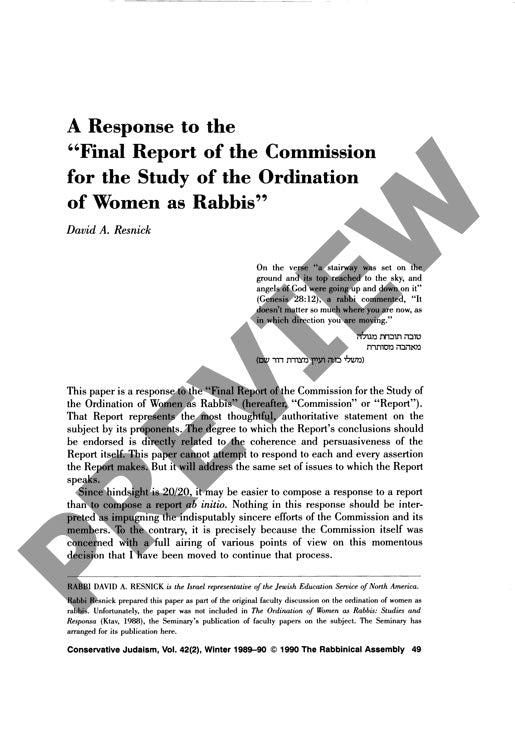A Response to the Final Report of the Co
Couldn't load pickup availability
The 1979 Commission for the Study of Women's Ordination as Rabbis marked a pivotal moment in Conservative Judaism's struggle to balance tradition with changing social values - yet its recommendations rested on deeply problematic foundations. Through qualitative textual analysis and examination of procedural precedents, three major flaws emerge in the Commission's work: unprecedented inclusion of non-halakhic authorities that undermined traditional rabbinic structures, inadequate engagement with Conservative Judaism's complex legal frameworks, and reliance on secular rather than religious ethical reasoning. The Commission's composition and procedures departed significantly from historical norms for religious decision-making. Its halakhic arguments failed to fully address women's status within Jewish law, while empirical data revealed that the most observant Conservative Jews opposed women's ordination, contradicting claims of broad community support. Rather than providing meaningful advancement of women's religious participation, the Commission's narrow focus on ordination risked compromising Conservative Judaism's halakhic integrity. The findings suggest that only a comprehensive examination of women's religious obligations and alternative paths for communal service can prevent Conservative Judaism from shifting toward a form of traditionalist Reform Judaism. This analysis employs systematic critique across halakhic, ethical and empirical dimensions to demonstrate how the Commission's approach represented an inadequate solution to fundamental questions about women's role in Jewish tradition.

More Information
-
Physical Description
-
Publication Information
Published 1989-1990
ISBN
-
Publication Credits
David Resnick

